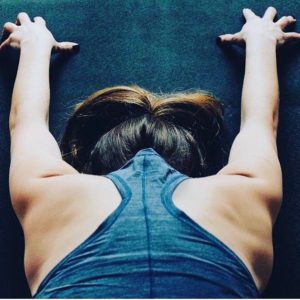Can Yoga Help Depression?
There appears to be increasing evidence that yoga benefits not only physical aspects of health but also mental health conditions, in particular depression. It also seems that the breathwork plays an important role in these results.
In Australia 3 million people are now reliant on antidepressant medication with depression being one of the most common mental health issues in Australia. However there are concerns that depression is being over diagnosed and medications over prescribed. In addition up to 40% of people taking antidepressants do not fully recover.
Clinical Depression:
A 2017 study published in The Journal of Complementary Medicine studied a cohort of 30 participants with clinical depression for 3 months. They were aged between 18 to 64 years, some taking anti-depressants and some not. The group was divided into two groups, one that practised an Iyengar yoga class 3 x week as well as 4 home sessions and the other group took 2 classes a week as well as 3 home sessions every week. Both groups were taught deep gentle breathing. All participants lowered their scores on the depression screening questionnaire by at least 50%.
Chronic depression:
Another study conducted in The Netherlands looked at the benefits of yoga on chronic depression. This was conducted on a smaller cohort of 12 adults with long term depression. The participants were required to take part in one 2.5 hour yoga class once a week for 9 weeks. Levels of depression, anxiety and stress were measures before and after the program and then 4 months later. It was found that levels decreased during the programme and these levels remained 4 months later.
Another study conducted at the San Francisco Veterans Affairs Medical Centre in California looked at the benefits of yoga for veterans. This study involved 23 male veterans who were required to participate in an hatha yoga session 2 x week for 8 weeks which included physical practice, breathing exercises and meditation. The result was a significant reduction in depression scores after the 8 week period.
Breathwork:
There have been other studies that concluded it is the benefits of deep breathing associated with yoga, known as pranayama, that helps reduce depression scores. Pranayama allows the participant to access their parasympathetic nervous system which through a complex biological process, reduces the fight or flight response after a perceived ‘danger’ (stress) has passed and helps the body move into a ‘rest and digest’ phase. This helps to calm and clear the mind.
It is my belief that although many of these benefits result from deep breathing the physical practice of yoga allows the participant to connect more deeply to the breath through the movement of Hatha yoga.
Yoga should certainly be considered as part of a wholistic approach to improving mental health especially in the area of depression.

